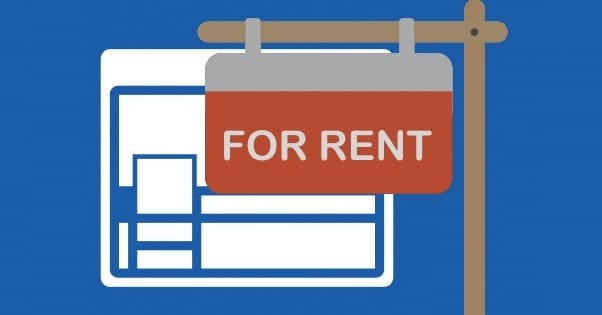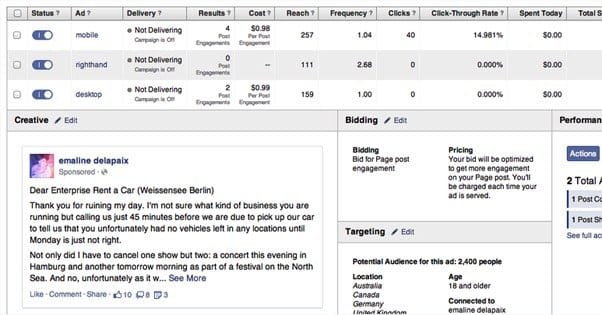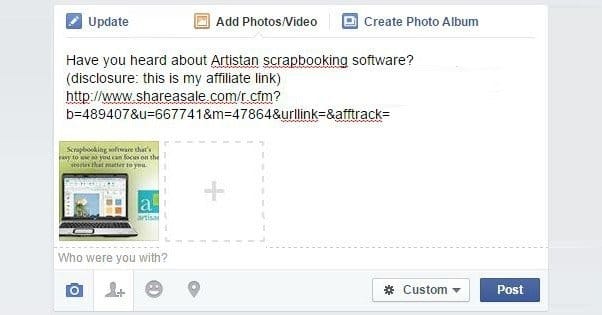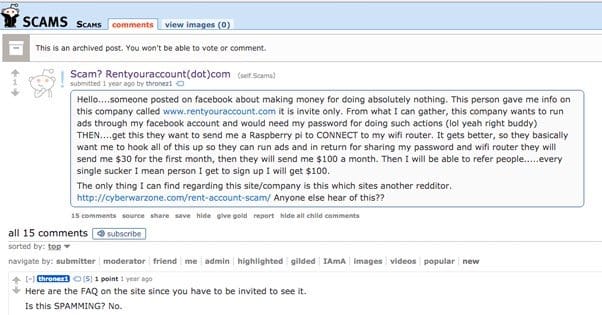 Written by ContentPowered.com
Written by ContentPowered.com
Facebook isn’t like a blog, where you have complete control and can monetize anything you like. Typically, you have very few avenues to make money from Facebook. One is to post affiliate links organically, which has a tendency to look like spam. Another is to run an organic page referring traffic to your website, where you have other monetization methods, ranging from affiliate links and pay per view ads to actual products on sale. That’s more legitimate. You can also pay for ads to supplement that traffic, but that’s not making money; it’s spending it, unless you’re good at selling.
Some enterprising people have come up with a few alternative monetization schemes on Facebook, and I decided to take a look at them. Be warned; you need to be very careful when you do any of them, for reasons that will become clear as you read on.
Renting the Account Completely
This first method involves someone approaching you and asking to rent control over your account completely. They are, essentially, looking to buy your account for a fixed period. They will gain access to everything you have; your followers, your posts, your ads manager, and so forth.
This is a very much not recommended option. You should already have red flags from reading that paragraph. Here’s why:
- Facebook pages are tied to profiles; to give access to your page requires handing over your profile. You could create a sub-admin level user to manage your page for you – in fact, this is a common practice with social media agencies – but it’s unlikely to be enough for the user who wants to rent space.
- When the user has access to your account, they can use it for other purposes. Don’t expect them to play nice. If you have any payment information included, they will certainly use it. You’ll have a major case of identity theft on your hands, if you’re not careful.
- If you have a brand reputation or presence built up, you’re going to lose it. The person renting the account is at minimum going to change all of that information to their own brand, essentially purchasing the audience from you. That audience will leave when they realize you’re no longer who you said you are, and your page will be destroyed.
- There’s a limit on the number of times you can change the information for your Facebook page. Renting out anything that changes names or URLs is irreversible. Even if you de-authenticate the renter and kick them out, you won’t be able to revert your information.
- Even if the renter claims they aren’t going to touch your page itself, they might be doing things to the underbelly. They might be sending messages on your behalf, posting to people’s walls where you don’t see it, or using your ads manager to run ads that, well, have a lot of issues.
When I say a lot of issues with ads, I mean a few things. For one, the renter might not be in a country eligible to run Facebook ads, and that might be for a very good reason. They might be running ads that circumvent processes that Facebook uses to filter them. You might find your ads are inadvertently supporting ISIS, for all you know. If nothing else, unauthorized use of the ads system can and will get your ads access revoked and potentially find your page banned.
There’s also the possibility that they’ll run perfectly benign-looking ads, only to pay for them with stolen information. Financial fraud will definitely get your page banned, and you might even be investigated for identity theft and fraud. “I didn’t know they were going to do it” isn’t a valid excuse when the act of account sharing is against the terms of service.
So, no matter how hard-up you are for money, don’t rent out your entire account. You will get banned, you might be the target of worse actions, and you’ll lose everything. If, somehow, you really don’t care about your Facebook page, just sell it instead. That’s still against the terms of service, but at least you don’t leave behind personal information and you don’t find yourself on the hook for the crimes of another.
Renting Ads Account Access
This second monetization method, renting out access to your ads account, is slightly more legitimate. However, you have to go about it intelligently if you want to actually succeed. See, if you just give ads account access to the renter, you’re running into every one of the issues listed above. Instead, you need to strike a deal where you run ads as specifically created by the renter, but you do all of the actual mechanical effects. You create them, you pay for them, and you make sure they don’t screw you over.
The issues with this are also obvious. You’re going to at the very least find that your ads relevance score is going to absolutely tank. You can’t run ads for different strange middle eastern or south east Asian countries and websites without facing some scrutiny.
That scrutiny, by the way, could very well get you banned as well. Facebook might find you in violation of some term or another in their terms of service, and there’s not really anything you can do to fight it. You’re running ads you shouldn’t be running and you’re accepting payment for them; it better be worth it.
For that matter, you also run into issues with payments. How much do you trust “Dave” from Viet Nam? “Dave” isn’t his real name and he probably doesn’t actually have the money to pay you. He wants to see the ads in action before he pays you, and you need to pay Facebook up front before your ads can run. Facebook takes your money and runs the ad, but they don’t like or want to allow you to run the ads. You risk having the ads cancelled or the ads account terminated. Then you go and get payment from “Dave” and he’s nowhere to be found. You go to cancel the ads, and that’s fine, but you’ve still pre-paid a bunch for them and you got nothing out of it. Even if “Dave” just got a handful of hits to the ads, they were free hits.
Renting Post/Image Real Estate
This one is much, much more legitimate. Instead of dealing with credentials or ads, you just rent out real estate on your page. Even personal profiles can do this; they have cover photos just like pages.
Think about it; Facebook is a platform where you have a page that can be viewed for free an infinite number of times by anyone, as long as it’s public. If you’re a person with a lot of followers or a page with a lot of fans, you have a lot of potential views.
Just like with sponsored posts on a blog, you could accept sponsored posts on Facebook. All you need to do is say you’ll make a post promoting X service or product as long as you get $YYY in exchange. Prices will vary according to who you care to rent to, what quality their products are, and how long they want you to keep the image up if you’re using an image.
You can rent out your cover photo like a billboard. You can rent to singular entities, or you could even rent out small boxes on your cover photo – a collage of logos, even – like some sort of modern day equivalent to the million dollar homepage. You could charge by the day, or rent out weeks or months.
You can rent out individual posts. X amount of money will get you to post once, 2X for two posts, and so on. You can decide whether or not you allow the renter to compose the post or if you have to write it yourself, to keep it in your voice. You can rent out as many as you want, or have a fixed number per week so you don’t drive away all of your followers or fans with spam.
You can even get inventive if you want and rent out images to show up in your images tab app, or even tab app graphics themselves. You can rent out your profile picture like your cover photo. You can rent out anything you want.
The key to this is to find someone willing to pay, and that’s not always easy. The people most willing to pay probably aren’t willing to pay the kinds of numbers you want if you have a sizable following. You can make more from legitimate forms of monetization than you can from renting to low-cost clickfarmers in Dubai.
Also, of course, technically this is all against Facebook’s terms of service. The exact line says you “will not use your personal profile for your own commercial gain.” Pages are designed for that, but they aren’t designed for sponsored posts. It’s a muddy ground, but it seems pretty clear when you take a few steps back. Sell your post spots, and you risk getting banned.
The Raspberry Pi Scam
Now, there’s one other variation floating around, and it’s very much like the first “rent your total account” risky business. The difference is, supposedly the renter doesn’t need control or access to your account. Sounds a lot better, right? You still risk your account status, but at least you’re in control.
Or are you? The idea is that the renter sends you a little device called a Raspberry Pi. These are tiny computers that can run very basic software. They’re not very powerful, but they’re very versatile. They can act as streaming boxes, they can host tiny web browsers, they can play super basic games. They have been used in robots and arcade machines.
A Raspberry Pi is also the perfect sort of device to run scripts like keyloggers and injectors that take control over your account when you’re not looking. You log into Facebook and go idle. It detects it and starts making actions in a new, hidden browser window.
These devices buy Facebook ads, they send out malware links, they run as part of a botnet and can be controlled into doing anything the owner wants, from DDoSing sites to hacking your computer and taking your information. They log your information regardless. Everything you do, it monitors and can corrupt.
As a general rule of thumb, if anyone ever wants to connect a strange device to your computer or your home network, don’t allow it. At absolute minimum you’re going to get your personal information stolen. More likely you’ll end up as part of an international fraud investigation.
Legitimate Facebook Income
Frankly, there are much better ways to make money from Facebook than spend your time dealing with shady loons on the other side of the country preying on poor people with Facebook accounts and low IQs.
The easiest is one I mentioned already, affiliate marketing. Really, all you need to do to get started is pick a product or genre of products you’re into. It could be a hobby item, a computer part, a book, or anything else. Find something on Amazon and start up a quick WordPress blog. Write about that book and how good it is, add a link to buy it, and post the link to your Facebook page. Boom: affiliate marketing.
Sure, actual affiliate marketing – the kind that earns you thousands of bucks a week, not a decade – has a lot more effort put into it. The fact is, though, it’s a heck of a lot easier and infinitely safer than any of the above methods. All of the rental methods involve doing something against Facebook’s terms of service.
Sure, if you’re sly about it, maybe you can make it work. You would have to be very picky about what you posted and when, and you certainly can’t allow access to some random guy in Malaysia. As long as your posts end up looking organic and fitting in with your usual content, then maybe – just maybe – you’ll get away with it. Facebook deal with low-key basic marketing all the time. Someone just sharing a post from a service they purchased from is marketing organically, and it’s not bannable. That’s what you’re looking to replicate, not random posts made by a spammer on your account.






